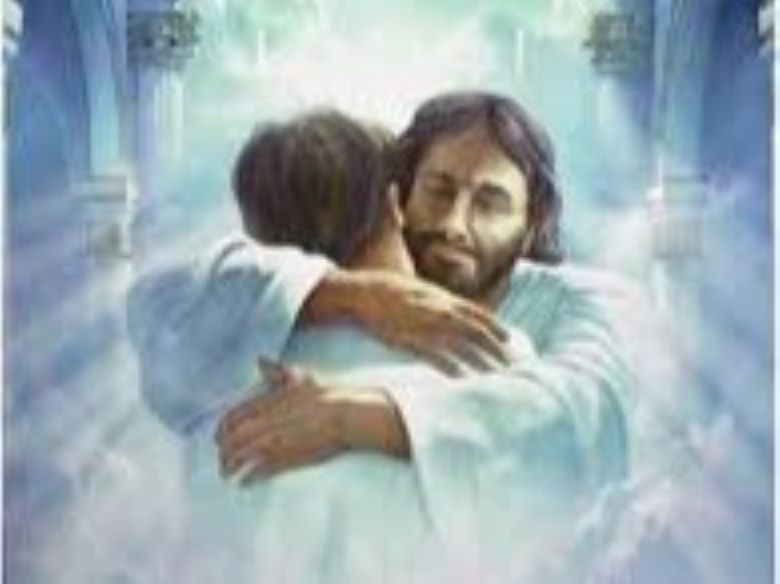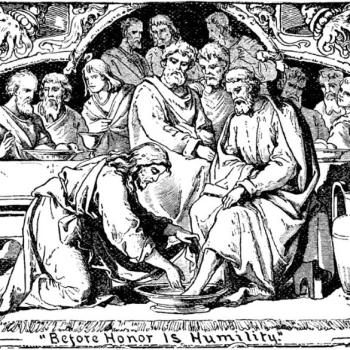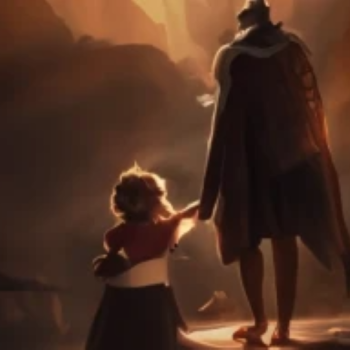You can love your country, but since a country is an abstract concept that only exists as lines drawn on a map, it cannot love you back. Your country can have a strong military, but that can’t keep you safe from what happens inside our borders. Your government officials can promise you everything, but they themselves are not in a position to truly provide you with anything.
Bottom line—if you put your hope in politics, you will always find disappointment.
However, there is a way around that.

For the first 33 years of my life, my needs were never truly met. But for the last twenty, they have been. Since surrendering my life to Jesus Christ, I have experienced love:
Greater love has no one than this, that he lay down his life for his friends. (John 15:13 NIV)
There is no fear in love; but perfect love casts out fear, because fear involves punishment, and the one who fears is not perfected in love. (1 John 4:18 NASB)
The first time I felt truly safe was when I learned and internalized these words:
Thou shalt not be afraid for the terror by night; nor for the arrow that flieth by day; nor for the pestilence that walketh in darkness; nor for the destruction that wasteth at noonday. A thousand shall fall at thy side, and ten thousand at thy right hand; but it shall not come nigh thee. (Psalm 91:5-7 KJV)
Even in my moments of weakness, when I let world events and political rhetoric get the better of me, I still hold fast to this truth:
In my anguish I cried to the Lord, and he answered by setting me free. The Lord is with me; I will not be afraid. What can man do to me? (Psalm 118:5-6 NIV)
And for the first time in my life, I finally have a hope and a future (anybody who ever bought a wall plaque at Family Christian back in the day knows where I am going with this):
“For I know the plans I have for you,” declares the Lord, “plans to prosper you and not to harm you, plans to give you a hope and a future.” (Jeremiah 29:11 NIV)
Yes, I know that this is one of the most overused, out-of-context Bible quotes of this age. Yes, I know that it was a specific message God gave through the prophet Jeremiah for specific people in a specific situation at a specific time (the Jewish exiles in Babylon in the sixth century BC).
But see, that’s just it. The Jewish exiles of 2,600 years ago had the same needs that we do today. They needed to know that God still loved them, that He would preserve and protect them, even though they were captives in Babylon for 70 years, and that they would have a hope and a future (in their case, that they would return to their homeland and rebuild Jerusalem).
Different situation, different time, same needs. Because they were “us,” just as we all were created to be “us.”
This is why I emphasize common ground so much when writing about the concept of being a Truthseeker. These needs are common to all.
The Three Needs
All these needs are met in Jesus Christ, and in Christ alone. I can love, because He loved me first, before I even acknowledged Him (1 John 4:19). I know that under His protection, no weapon formed by man shall prosper against me (Isaiah 54:17).
But most of all, I have a hope and a future. I know (because I have seen) that my Lord has gone to prepare a place for me (John 14:2), and that a day will come when my cup will overflow with streams of living water, coming from God’s throne (Revelation 22:1)—the Day when my future will become my eternal present.
God wants this for all of “us.” Christianity is not supposed to be an “us” vs. “them” proposition. Jesus said in Matthew 28:19 to go and make disciples of all nations. He didn’t say, “Go into the world, but don’t baptize or teach ‘them.’”
Nineveh
God explicitly displays his heart for the people he created in the book of Jonah, my personal favorite in the entire Bible.
Most people know about Jonah being swallowed by the whale/big fish, but that’s not really the point of the story.
Jonah was on that ship in the first place, because he was (futilely) trying to flee from God. He was fleeing, because God had told him to go and preach in Nineveh, the Assyrian capital. In that time, the Ninevites were the ultimate “them” to the Israelites.
So, after his aquatic incident, God gives Jonah a second chance to preach to Nineveh. He gives the shortest sermon in history,
“Forty more days and Nineveh will be overturned.” (Jonah 3:4 NIV)
Then, he goes up to a high place where he will have a most excellent view of God destroying “them.”
But then, a curious thing happens. The Ninevites listen! And REPENT!

The great smackdown doesn’t happen, because God has heard their prayers and is giving “them” a second chance. Jonah, being one of “us” (that is, Israel), has issues with this. But listen to God’s response:
“. . . Nineveh has more than a hundred and twenty thousand people who cannot tell their right hand from their left, and many cattle as well. Should I not be concerned about that great city?” (Jonah 4:11 NIV)
Jonah is the only book in the Bible to end with a question.
So, what’s the answer?
Did you notice the theme in the book of Jonah? Both Jonah AND the Ninevites get second chances. God does not show favoritism. Because he made all of us, to Him, there is only “us.”
But here’s the catch. We have to affirm that Truth. God is willing to include anyone as “us,” but WE have to accept the invitation.
We become part of “us” by laying down our pride, which is the mother of all sin, and the creator of “them.” We become part of “us” by trusting God with our hearts, our fears, our anxieties, even our bodies. By submitting our will to His, he responds by meeting all our needs.
Love is faithful; love is kind.
Now at this point, we still have a multitude of unhealthy habits to break (Lord knows I do), but we have an example to follow in Jesus. His perfect love drives out fear, the constant presence of His holy spirit keeps us safe from harm (if we let Him), and if we follow Him faithfully, the hope for our future will play out in front of our eyes, day by day.
The key word there was “faithfully.” We do have a part to play in this transaction. If we allow ourselves to be polluted by the world (James 1:27) and look to the things and people of this world to meet the needs that only God can, then we will become the “them” that we had despised.
The Bible calls “them” sinners. Here’s the clincher—if you look at other people and see a “them,” you are one of “them.”
However, if you look at other people, no matter how different they are from you, and still see an “us,” or at least a potential “us,” then that is a sign that the Holy Spirit is within you, transforming you into the likeness of Jesus, who being one with the Father, created us to be “us.”
Thanks for reading! Lots more coming in August. Click the Free Newsletter link above and drop your email so you don’t miss out!












